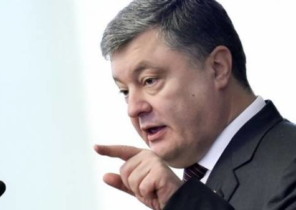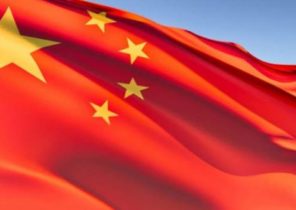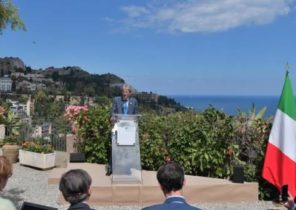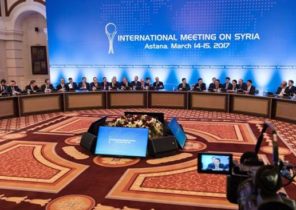“History never repeats itself but often rhymes.” The recent series of clashes of Russian and American embassies will remind, Russia has cut several hundred employees of the American Embassy in response to the expulsion of the U.S. 35 Russian diplomats in December last year — like the large-scale exclusion from the U.S. of the Soviet Embassy in 1986. Few remember the details of these battles of the age of Reagan. But many of us remember the 1980s, the years ended for the Soviet Union is bad.
The fact of the matter is: now, as then, Moscow should obscure the path of confrontation with the United States and aggression against others. As in the case of Councils and kings, the reactionaries, the external opposition coincides with a period of stagnation in the country and, perhaps, performs a function of compensation for this stagnation. Putin’s tactics, and the demonization of the United States in the Russian official media in the end is a return to the methods of the cold war. Russian cyber attacks and disinformation reminiscent of the Soviet “active measures” of the 1980-ies.
Sluggish war in Ukraine is different from the Soviet invasion of Afghanistan (at least due to the fact that Ukrainians are fighting for a European future), but both triggered local resistance and negative reaction of the West. Russian leaders may try to convince their people and themselves is that their ability to intimidate neighbors, to suppress dissidents and shake his fists in front of the noses of the United States, is a sign of strength. But, as in the middle of 1980-ies, it won’t work.
Contrary to the aspirations of the Soviet and now Putin’s regime, the West is on its last legs not breathing. Anti-European and Pro-Russian candidate from the nationalists, who were supported by Putin, lost the French elections this spring. No matter what agreement with President trump tried Putin (and maybe he believes it already exists), the strength of American institutions and long-term interest of Americans in the successful promotion of certain values — including the rule of law, human rights, democracy, and prosperity, which they in turn provide — is likely to prevail, and it will be Putin is not on hand. Neither Putin’s aggression abroad, nor its repression in the country will not help a stalled Russian economy, which still depends on exports of oil, gas and other raw materials, or a political system mired in excessive corruption coming from the top.
Today Russian recognize (and critical of) the early-and mid 1980-ies as a period of stagnation. But after several years of enhanced growth (i.e. high oil prices), Russia appears to have returned to a similar situation. Perhaps in the end, as in the middle of 1980-ies, thoughtful Russians are aware of — and some will even say publicly that their country cannot continue to follow this path; that Russia needs to modernize; and that for this purpose it is necessary to strengthen, not weaken, the rule of law in the country, to expand, not to narrow access to foreign capital and technology. Therefore, Russia needs a more constructive relationship with the West, including with the United States. The Russian, who hold similar opinions, right. Experience shows that Russia must choose between modernization and aggression.
Currently, the working group on Russia in the state Department and national security Council analyses the reductions in the staff of the Embassy and consulates and, apparently, considers the appropriateness of the response. These professionals can develop different options, as did my colleagues and I in our old Soviet Department in the 1980-ies. I hope their recommendations will be taken into consideration. But ultimately, the response to the present provocations now — not the most important. Specific measures taken by us in 1986 concerning the Board the expulsion of all Russian staff from the Embassy in Moscow has played a really significant role. It is important that the Reagan administration understood the nature of the Soviet Union and developed in relation to it a special policy, the implementation of which in life he engaged in the same imaginary and causing criticism of government bureaucrats “deep state”. And this policy worked.
A sensible policy towards Russia would mean the resistance of Russian aggression and helping others in this opposition; identifying areas of potential cooperation (in this case one should not expect too much from them or to reward Russia for its cooperation in the areas of supposed mutual interest); stable relations wherever possible, including by maintaining a dialogue on civil and military levels; and a desire for better relations with the best Russian in the future. We deal with the Russia that we have. But let’s not forget that Putin’s Russia is not the only possible Russia. We learned about the benefits of maintaining contact with Russian society in General, including thinking in a democratic manner by the dissidents who do not always remain in the shadows, as well as with potential future leaders that are configured for reform.
And the experience of the 1980s years, offers us today the appropriate tactics. Now, as then, it implies a balance especially in the face of Russian scaremongering or attempts of intimidation. Now, as then, it implies patience: Russian can misinterpret spunky ingenuity (for example, when they run, calling for some cooperation, something like that), taking it for weakness. And despite claims to trump that he didn’t like the new bill on sanctions, which he signed Wednesday, the document provides his administration’s new powers. It can continue to exert pressure on Putin to resolve the conflict in Ukraine in line with Minsk agreements, and to raise the price that Russia will have to pay for his intervention in last year’s electoral process in the United States (the Obama administration, I was the coordinator of sanctions policy of the Department of state and participated in the preparation of the current sanctions against Russia, I also supported the current bill, which is now in force). When Russia will go the other way — and it will, as history teaches us — America must be ready to respond to that.
Meanwhile, Europe has established itself as a sensible partner in Russia. To resist the aggression of Russia in Ukraine, America and Europe have imposed sanctions together. European countries have contributed to the containment of Russia, who put pressure on members of NATO, through the deployment of troops in the Baltic States, along with the deployment of us troops in Poland and other Central European countries. The new law on sanctions does contain language that can jeopardize the solidarity with Europe, but introduced later amendment lowered this probability. The administration can make to achieve the main goal of the adoption of the law is to put pressure on Russia not to provoke a split with Europe.
Dealing with Russia as during the cold war, Americans should remember who they are. They are the leaders of the free world and defenders of democracy and the rule of law. Our values give us strength. We have a behind — the own mistakes, and our public institutions once again are being subjected to internal tests. But by nature we remain a nation built on important values, one of which is our commitment to the provision stating that all men are created equal. The strength of this tradition ensures America its reputation in the world. If we apply this experience and these values, in fact in our last decision of the Russian problems with our democratic allies in Europe and beyond, we will succeed.
Daniel fried — honored member of the Atlantic Council. Formerly a career diplomat and former Ambassador to Poland, senior Director of the NSC under presidents Clinton and Bush, the U.S. assistant Secretary of state for European Affairs in the Bush administration and coordinator for sanctions policy of the US state Department in the Obama administration.







